- Home
- Herman Melville
Bartleby and Benito Cereno Page 12
Bartleby and Benito Cereno Read online
Page 12
At first, the Spaniard glanced feverishly up, casting a longing look towards the sealer, while, with mute concern, his servant gazed into his face. Suddenly the old ague of coldness returned, and dropping back to his cushions he was silent.
“You do not answer. Come, all day you have been my host; would you have hospitality all on one side?”
“I cannot go,” was the response.
“What? it will not fatigue you. The ships will lie together as near as they can without swinging foul. It will be little more than stepping from deck to deck, which is but as from room to room. Come, come, you must not refuse me.”
“I cannot go,” decisively and repulsively repeated Don Benito.
Renouncing all but the last appearance of courtesy, with a sort of cadaverous sullenness, and biting his thin nails to the quick, he glanced, almost glared, at his guest, as if impatient that a stranger’s presence should interfere with the full indulgence of his morbid hour. Meantime the sound of the parted waters came more and more gurglingly and merrily in at the windows; as reproaching him for his dark spleen, as telling him that, sulk as he might, and go mad with it, nature cared not a jot, since whose fault was it, pray?
But the foul mood was now at its depth, as the fair wind at its height.
There was something in the man so far beyond any mere unsociality or sourness previously evinced that even the forbearing good nature of his guest could no longer endure it. Wholly at a loss to account for such demeanor, and deeming sickness with eccentricity, however extreme, no adequate excuse, well satisfied, too, that nothing in his own conduct could justify it, Captain Delano’s pride began to be roused. Himself became reserved. But all seemed one to the Spaniard. Quitting him, therefore, Captain Delano once more went to the deck.
The ship was now within less than two miles of the sealer. The whaleboat was seen darting over the interval.
To be brief, the two vessels, thanks to the pilot’s skill, erelong in neighborly style lay anchored together.
Before returning to his own vessel, Captain Delano had intended communicating to Don Benito the smaller details of the proposed services to be rendered. But as it was, unwilling anew to subject himself to rebuffs, he resolved, now that he had seen the San Dominick safely moored, immediately to quit her, without further allusion to hospitality or business. Indefinitely postponing his ulterior plans, he would regulate his future actions according to future circumstances. His boat was ready to receive him; but his host still tarried below. Well, thought Captain Delano, if he has little breeding, the more need to show mine. He descended to the cabin to bid a ceremonious, and, it may be, tacitly rebukeful adieu. But to his great satisfaction, Don Benito, as if he began to feel the weight of that treatment with which his slighted guest had, not indecorously, retaliated upon him, now, supported by his servant, rose to his feet, and grasping Captain Delano’s hand, stood tremulous, too much agitated to speak. But the good augury hence drawn was suddenly dashed by his resuming all his previous reserve with augmented gloom, as, with half-averted eyes, he silently reseated himself on his cushions. With a corresponding return of his own chilled feelings, Captain Delano bowed and withdrew.
He was hardly midway in the narrow corridor, dim as a tunnel, leading from the cabin to the stairs, when a sound, as of the tolling for execution in some jailyard, fell on his ears. It was the echo of the ship’s flawed bell striking the hour, drearily reverberated in this subterranean vault. Instantly, by a fatality not to be withstood, his mind, responsive to the portent, swarmed with superstitious suspicions. He paused. In images far swifter than these sentences, the minutest details of all his former distrusts swept through him.
Hitherto, credulous good nature had been too ready to furnish excuses for reasonable fears. Why was the Spaniard, so superfluously punctilious at times, now heedless of common propriety in not accompanying to the side his departing guest? Did indisposition forbid? Indisposition had not forbidden more irksome exertion that day. His last equivocal demeanor recurred. He had risen to his feet, grasped his guest’s hand, motioned toward his hat; then, in an instant, all was eclipsed in sinister muteness and gloom. Did this imply one brief repentant relenting at the final moment from some iniquitous plot, followed by remorseless return to it? His last glance seemed to express a calamitous yet acquiescent farewell to Captain Delano forever. Why decline the invitation to visit the sealer that evening? Or was the Spaniard less hardened than the Jew, who refrained not from supping at the board of him whom the same night he meant to betray? What imported all those daylong enigmas and contradictions, except they were intended to mystify, preliminary to some stealthy blow? Atufal, the pretended rebel but punctual shadow, that moment lurked by the threshold without. He seemed a sentry, and more. Who, by his own confession, had stationed him there? Was the Negro now lying in wait?
The Spaniard behind—his creature before: to rush from darkness to light was the involuntary choice.
The next moment, with clenched jaw and hand, he passed Atufal, and stood unharmed in the light. As he saw his trim ship lying peacefully at anchor and almost within ordinary call; as he saw his household boat, with familiar faces in it, patiently rising and falling on the short waves by the San Dominick’s side; and then, glancing about the decks where he stood, saw the oakum-pickers still gravely plying their fingers, and heard the low, buzzing whistle and industrious hum of the hatchet-polishers still bestirring themselves over their endless occupation; and more than all, as he saw the benign aspect of nature taking her innocent repose in the evening, the screened sun in the quiet camp of the west shining out like the mild light from Abraham’s tent—as charmed eye and ear took in all these, with the chained figure of the black, clenched jaw and hand relaxed. Once again he smiled at the phantoms which had mocked him, and felt something like a tinge of remorse that, by harboring them even for a moment, he should by implication have betrayed an atheist doubt of the ever-watchful Providence above.
There was a few minutes’ delay, while, in obedience to his orders, the boat was being hooked along to the gangway. During this interval, a sort of saddened satisfaction stole over Captain Delano at thinking of the kindly offices he had that day discharged for a stranger. Ah, thought he, after good actions one’s conscience is never ungrateful, however much so the benefited party may be.
Presently his foot, in the first act of descent into the boat, pressed the first round of the side ladder, his face presented inward upon the deck. In the same moment he heard his name courteously sounded, and, to his pleased surprise, saw Don Benito advancing—an unwonted energy in his air, as if, at the last moment, intent upon making amends for his recent discourtesy. With instinctive good feeling, Captain Delano, withdrawing his foot, turned and reciprocally advanced. As he did so, the Spaniard’s nervous eagerness increased, but his vital energy failed, so that, the better to support him, the servant, placing his master’s hand on his naked shoulder, and gently holding it there, formed himself into a sort of crutch.
When the two captains met, the Spaniard again fervently took the hand of the American, at the same time casting an earnest glance into his eyes, but, as before, too much overcome to speak.
I have done him wrong, self-reproachfully thought Captain Delano; his apparent coldness has deceived me; in no instance has he meant to offend.
Meantime, as if fearful that the continuance of the scene might too much unstring his master, the servant seemed anxious to terminate it. And so, still presenting himself as a crutch, and walking between the two captains, he advanced with them towards the gangway; while still, as if full of kindly contrition, Don Benito would not let go the hand of Captain Delano but retained it in his, across the black’s body.
Soon they were standing by the side, looking over into the boat, whose crew turned up their curious eyes. Waiting a moment for the Spaniard to relinquish his hold, the now embarrassed Captain Delano lifted his foot to overstep the threshold of the open gangway, but still Don Benito would not let go his hand. And yet, wi
th an agitated tone, he said, “I can go no further; here I must bid you adieu. Adieu, my dear, dear Don Amasa. Go—go!” suddenly tearing his hand loose, “go, and God guard you better than me, my best friend.”
Not unaffected, Captain Delano would now have lingered, but, catching the meekly admonitory eye of the servant, with a hasty farewell he descended into his boat, followed by the continual adieus of Don Benito, standing rooted in the gangway.
Seating himself in the stern, Captain Delano, making a last salute, ordered the boat shoved off. The crew had their oars on end. The bowsmen pushed the boat a sufficient distance for the oars to be lengthwise dropped. The instant that was done, Don Benito sprang over the bulwarks, falling at the feet of Captain Delano; at the same time calling towards his ship, but in tones so frenzied that none in the boat could understand him. But, as if not equally obtuse, three sailors, from three different and distant parts of the ship, splashed into the sea, swimming after their captain, as if intent upon his rescue.
The dismayed officer of the boat eagerly asked what this meant. To which Captain Delano, turning a disdainful smile upon the unaccountable Spaniard, answered that, for his part, he neither knew nor cared; but it seemed as if Don Benito had taken it into his head to produce the impression among his people that the boat wanted to kidnap him. “Or else—give way for your lives,” he wildly added, starting at a clattering hubbub in the ship, above which rang the tocsin of the hatchet-polishers, and seizing Don Benito by the throat he added, “this plotting pirate means murder!” Here, in apparent verification of the words, the servant, a dagger in his hand, was seen on the rail overhead, poised, in the act of leaping, as if with desperate fidelity to befriend his master to the last; while, seemingly to aid the black, the three white sailors were trying to clamber into the hampered bow. Meantime, the whole host of Negroes, as if inflamed at the sight of their jeopardized captain, impended in one sooty avalanche over the bulwarks.
All this, with what preceded and what followed, occurred with such involutions of rapidity that past, present, and future seemed one.
Seeing the Negro coming, Captain Delano had flung the Spaniard aside, almost in the very act of clutching him, and, by the unconscious recoil shifting his place, with arms thrown up so promptly grappled the servant in his descent, that with dagger presented at Captain Delano’s heart, the black seemed of purpose to have leaped there as to his mark. But the weapon was wrenched away, and the assailant dashed down into the bottom of the boat, which now, with disentangled oars, began to speed through the sea.
At this juncture, the left hand of Captain Delano, on one side, again clutched the half-reclined Don Benito, heedless that he was in a speechless faint, while his right foot, on the other side, ground the prostrate Negro, and his right arm pressed for added speed on the after oar, his eye bent forward, encouraging his men to their utmost.
But here the officer of the boat, who had at last succeeded in beating off the towing sailors, and was now, with face turned aft, assisting the bowsman at his oar, suddenly called to Captain Delano to see what the black was about, while a Portuguese oarsman shouted to him to give heed to what the Spaniard was saying.
Glancing down at his feet, Captain Delano saw the free hand of the servant aiming with a second dagger—a small one, before concealed in his wool—with this he was snakishly writhing up from the boat’s bottom at the heart of his master, his countenance lividly vindictive, expressing the centered purpose of his soul; while the Spaniard, half-choked, was vainly shrinking away, with husky words, incoherent to all but the Portuguese.
That moment, across the long-benighted mind of Captain Delano, a flash of revelation swept, illuminating, in unanticipated clearness, his host’s whole mysterious demeanor, with every enigmatic event of the day, as well as the entire past voyage of the San Dominick. He smote Babo’s hand down, but his own heart smote him harder. With infinite pity he withdrew his hold from Don Benito. Not Captain Delano, but Don Benito, the black, in leaping into the boat, had intended to stab.
Both the black’s hands were held, as, glancing up towards the San Dominick, Captain Delano, now with scales dropped from his eyes, saw the Negroes, not in misrule, not in tumult, not as if frantically concerned for Don Benito, but, with mask torn away, flourishing hatchets and knives in ferocious piratical revolt. Like delirious black dervishes, the six Ashantees danced on the poop. Prevented by their foes from springing into the water, the Spanish boys were hurrying up to the topmost spars, while such of the few Spanish sailors not already in the sea, less alert, were descried, helplessly mixed in, on deck with the blacks.
Meantime Captain Delano hailed his own vessel, ordering the ports up, and the guns run out. But by this time the cable of the San Dominick had been cut, and the fag end, in lashing out, whipped away the canvas shroud about the beak, suddenly revealing, as the bleached hull swung round towards the open ocean, death for the figurehead, in a human skeleton, chalky comment on the chalked words below, FOLLOW YOUR LEADER.
At the sight, Don Benito, covering his face, wailed out: “’Tis he, Aranda! my murdered, unburied friend!”
Upon reaching the sealer, calling for ropes, Captain Delano bound the Negro, who made no resistance, and had him hoisted to the deck. He would then have assisted the now almost helpless Don Benito up the side; but Don Benito, wan as he was, refused to move, or be moved, until the Negro should have been first put below out of view. When, presently assured that it was done, he no more shrank from the ascent.
The boat was immediately dispatched back to pick up the three swimming sailors. Meantime, the guns were in readiness, though, owing to the San Dominick having glided somewhat astern of the sealer, only the aftermost one could be brought to bear. With this, they fired six times, thinking to cripple the fugitive ship by bringing down her spars, but only a few inconsiderable ropes were shot away. Soon the ship was beyond the gun’s range, steering broad out of the bay, the blacks thickly clustering round the bowsprit, one moment with taunting cries towards the whites, the next with upthrown gestures hailing the now dusky moors of ocean—cawing crows escaped from the hand of the fowler.
The first impulse was to slip the cables and give chase. But, upon second thoughts, to pursue with whaleboat and yawl seemed more promising.
Upon inquiring of Don Benito what firearms they had on board the San Dominick, Captain Delano was answered that they had none that could be used, because, in the earlier stages of the mutiny, a cabin passenger, since dead, had secretly put out of order the locks of what few muskets there were. But with all his remaining strength Don Benito entreated the Americans not to give chase, either with ship or boat, for the Negroes had already proved themselves such desperadoes that, in case of a present assault, nothing but a total massacre of the whites could be looked for. But, regarding this warning as coming from one whose spirit had been crushed by misery, the American did not give up his design.
The boats were got ready and armed. Captain Delano ordered his men into them. He was going himself when Don Benito grasped his arm.
“What! have you saved my life, señor, and are you now going to throw away your own?”
The officers also, for reasons connected with their interests and those of the voyage, and a duty owing to the owners, strongly objected against their commander’s going. Weighing their remonstrances a moment, Captain Delano felt bound to remain; appointing his chief mate—an athletic and resolute man, who had been a privateer’s-man—to head the party. The more to encourage the sailors, they were told that the Spanish captain considered his ship good as lost; that she and her cargo, including some gold and silver, were worth more than a thousand doubloons. Take her, and no small part should be theirs. The sailors replied with a shout.
The fugitives had now almost gained an offing. It was nearly night, but the moon was rising. After hard, prolonged pulling, the boats came up on the ship’s quarters, at a suitable distance laying upon their oars to discharge their muskets. Having no bullets to return, the Negroes sent
their yells. But upon the second volley, Indianlike, they hurtled their hatchets. One took off a sailor’s fingers. Another struck the whaleboat’s bow, cutting off the rope there, and remaining stuck in the gunwale like a woodman’s ax. Snatching it, quivering, from its lodgment, the mate hurled it back. The returned gauntlet now stuck in the ship’s broken quarter-gallery, and so remained.
The Negroes giving too hot a reception, the whites kept a more respectful distance. Hovering now just out of reach of the hurtling hatchets, they, with a view to the close encounter which must soon come, sought to decoy the blacks into entirely disarming themselves of their most murderous weapons in a hand-to-hand fight, by foolishly flinging them, as missiles, short of the mark, into the sea. But, erelong perceiving the stratagem, the Negroes desisted, though not before many of them had to replace their lost hatchets with handspikes, an exchange which, as counted upon, proved, in the end, favorable to the assailants.
Meantime, with a strong wind the ship still clove the water, the boats alternately falling behind and pulling up to discharge fresh volleys.
The fire was mostly directed towards the stern, since there, chiefly, the Negroes at present were clustering. But to kill or maim the Negroes was not the object. To take them, with the ship, was the object. To do it, the ship must be boarded, which could not be done by boats while she was sailing so fast.
A thought now struck the mate. Observing the Spanish boys still aloft, high as they could get, he called to them to descend to the yards, and cut adrift the sails. It was done. About this time, owing to causes hereafter to be shown, two Spaniards, in the dress of sailors and conspicuously showing themselves, were killed, not by volleys, but by deliberate marksman’s shots; while, as it afterwards appeared, by one of the general discharges Atufal, the black, and the Spaniard at the helm likewise were killed. What, now, with the loss of the sails and loss of leaders, the ship became unmanageable to the Negroes.

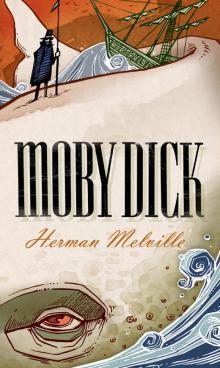 Moby Dick; Or, The Whale
Moby Dick; Or, The Whale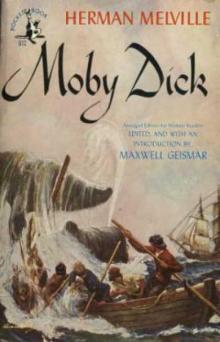 Moby Dick
Moby Dick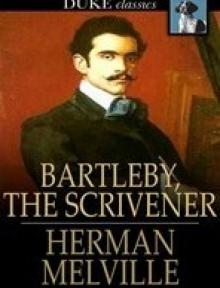 Benito Cereno and Bartleby the Scrivener
Benito Cereno and Bartleby the Scrivener Israel Potter: His Fifty Years of Exile (Annotated Edition)
Israel Potter: His Fifty Years of Exile (Annotated Edition) Billy Budd and the Piazza Tales
Billy Budd and the Piazza Tales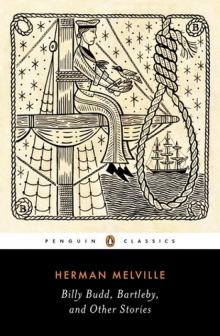 Billy Budd, Bartleby, and Other Stories
Billy Budd, Bartleby, and Other Stories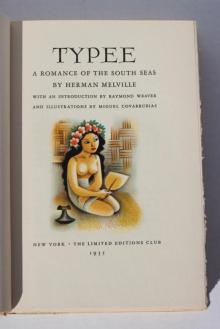 Typee: A Romance of the South Seas
Typee: A Romance of the South Seas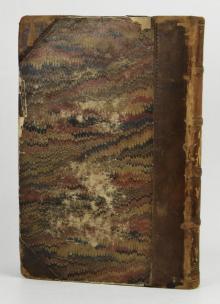 Omoo: Adventures in the South Seas
Omoo: Adventures in the South Seas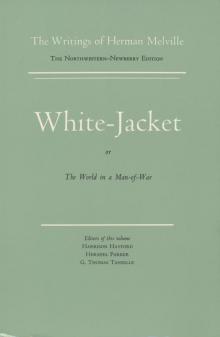 White Jacket; Or, The World on a Man-of-War
White Jacket; Or, The World on a Man-of-War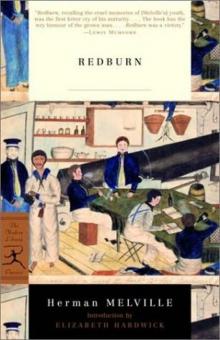 Redburn. His First Voyage
Redburn. His First Voyage Mardi: and A Voyage Thither, Vol. II
Mardi: and A Voyage Thither, Vol. II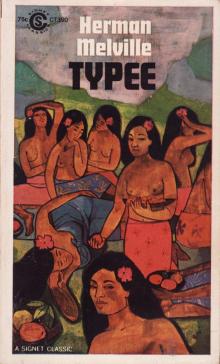 Typee
Typee The Paradise of Bachelors and the Tartarus of Maids
The Paradise of Bachelors and the Tartarus of Maids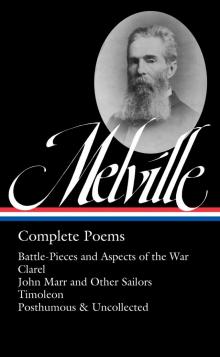 Herman Melville- Complete Poems
Herman Melville- Complete Poems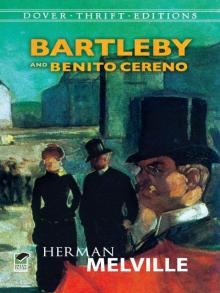 Bartleby and Benito Cereno
Bartleby and Benito Cereno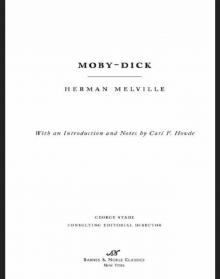 Moby-Dick (Barnes & Noble Classics Series)
Moby-Dick (Barnes & Noble Classics Series) Mardi and a Voyage Thither
Mardi and a Voyage Thither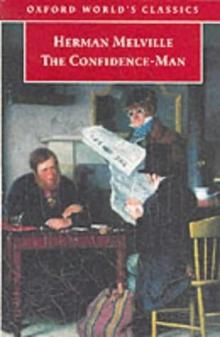 The Confidence-Man
The Confidence-Man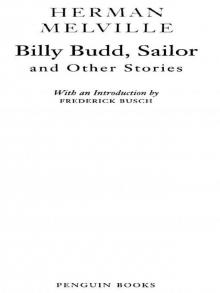 Billy Budd and Other Stories
Billy Budd and Other Stories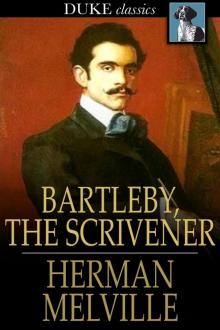 Bartleby the Scrivener
Bartleby the Scrivener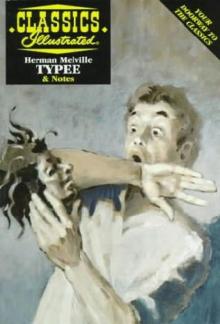 Typee: A Romance of the South Sea
Typee: A Romance of the South Sea I and My Chimney
I and My Chimney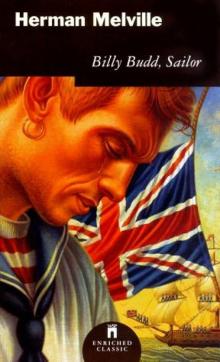 Billy Budd
Billy Budd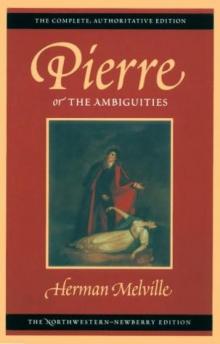 Pierre, Or the Ambiguities
Pierre, Or the Ambiguities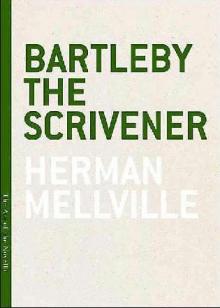 Bartleby, The Scrivener A Story of Wall-Street
Bartleby, The Scrivener A Story of Wall-Street Four Great American Classics
Four Great American Classics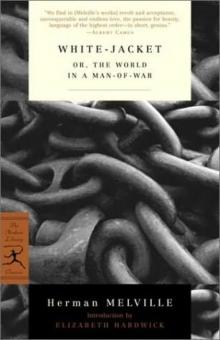 White Jacket or, The World on a Man-of-War
White Jacket or, The World on a Man-of-War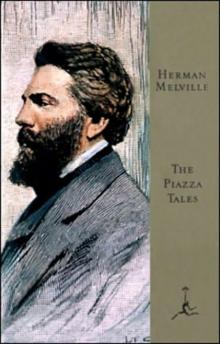 The Piazza Tales
The Piazza Tales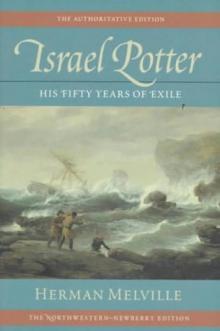 Israel Potter. Fifty Years of Exile
Israel Potter. Fifty Years of Exile